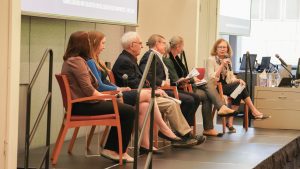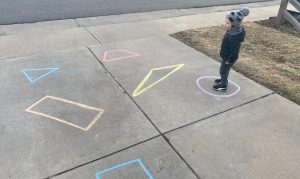Executive function skills include the ability to follow instructions to complete a task, stay focused despite distractions, and successfully switch between tasks. Research shows that EF supports problem-solving, which in turn supports the development of math skills. Moreover, both EF and math skills are linked to a wide range of important long-term academic outcomes. The DREME for Teachers project develops engaging preschool activities that simultaneously promote the development of children’s mathematical thinking and executive function skills throughout the school day, including center time and during transitions, like while lining up.
Publications
The effect of peer-assisted mathematics learning opportunities in first grade classrooms: What works for whom?
Authors: Wood, T., Mazzocco, M., Calhoon, M. B., Crowe, E. C. & Connor, C. M.
2020 in Journal of Research on Educational Effectiveness
Global proficiency framework for mathematics
Authors: Rhodes, R. & Platas, L.
2020 in USAID
Attention to numerosity varies across individuals and task contexts
Authors: Mazzocco, M., Chan, J., Bye, J. K., Padrutt, E. R., Praus-Singh, T., Lukowski, S., Brown, E.C. & Olson, R. E.
2020 in Mathematical Thinking and Learning
Examining and developing fourth grade children’s area estimation performance
Authors: Eames, C. L., Barrett, J. E., Cullen, C. J., Rutherford, G., Klanderman, D., Clements, D., Sarama, J. & Van Dine, D. W.
2020 in School Science and Mathematics
Preschool practices in Sweden, Portugal, and the United States
Authors: Coelho, V., Aström, F., Nesbitt, K., Sjöman, M., Farran, D., Björck-Äkesson, E., Christopher, C., Granlund, M., Almqvist, L, Grande, C. & Pinto, A.
2021 in Early Childhood Research Quarterly
Strategy diversity in early mathematics classrooms
Authors: Clements, D., Dumas, D., Dong, Y., Banse, H., Sarama, J. & Day-Hess, C.
2020 in Contemporary Educational Psychology
Blog posts

Advances in Early Math Education: Critical Issues in Policy and Practice
Read more →
Creating High-Quality Math Center Activities
Read more →
10 Ideas for Promoting Early Math and Peer Collaboration Skills
Read more →
What to Do When Your Students Don’t Want to Do Math Activities
Read more →
Creating Moments of Math Learning Throughout the School Day
Read more →